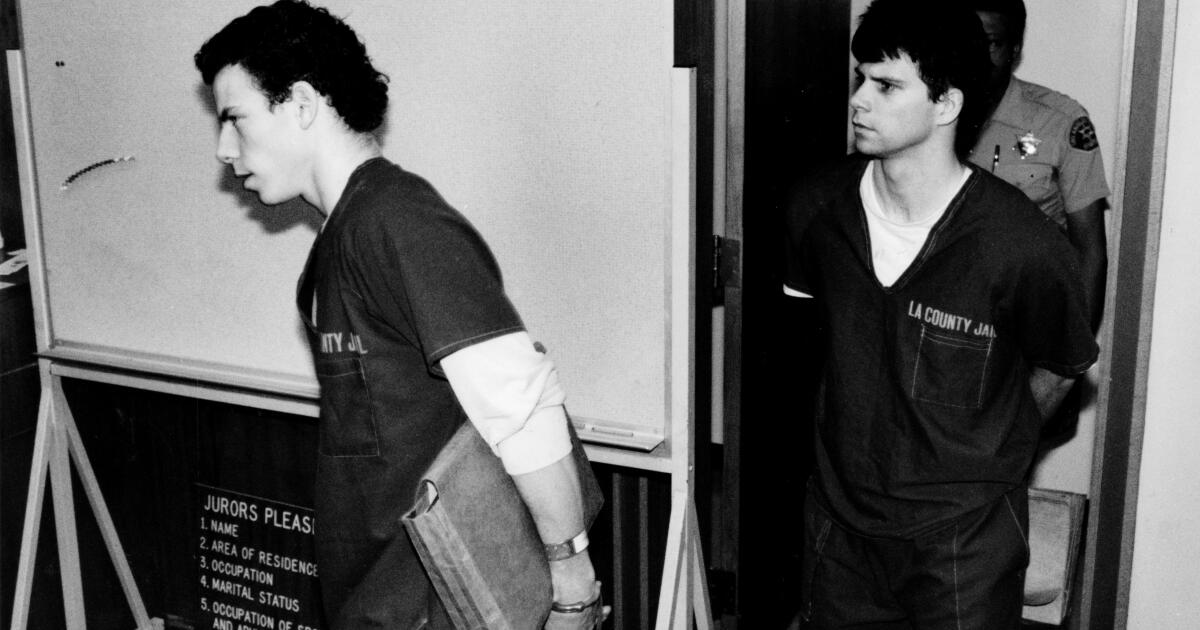Newsom offers clemency to 5 inmates serving life without parole
Gov. Gavin Newsom commuted the sentences of five inmates serving life without parole for murder, saying Friday that they deserve a chance at freedom after transforming their lives.
In all, the governor pardoned 23 people and commuted the sentences of 10 others. Newsom’s office said that many of those offered clemency had experienced childhood trauma and mental health struggles that impacted the choices they made.
Since he took office in 2019, Newsom has granted 247 pardons, which restore some rights to former felons, such as the ability to serve on a jury or obtain a professional license. He has also approved 160 commutations, which reduce sentences so that an inmate can appear before a parole board and potentially be released.
In this round, Newsom pardoned people convicted of assault with a deadly weapon, burglary, attempted murder and drug crimes. His office highlighted that pardons were prompted by what individuals did in the years after those convictions and were at the recommendation of elected officials, law enforcement officers and community leaders.
Among those whose sentences were commuted was Randolph Hoag, who was 28 years old in 1990 when he was convicted in Los Angeles County of murdering his girlfriend’s ex-husband. The Times reported that Hoag, a truck driver, shot Charles Sweed six times in the back before running away.
Newsom said Hoag, now 63, has “demonstrated a commitment to his rehabilitation and self-improvement” and is considered “a high medical risk based on his chronic, serious medical conditions.” Hoag will now be eligible to appear before the Board of Parole hearings, which decides whether a person is a risk to the community after considering input from victims, their families and prosecutors.
“This act of clemency for Mr. Hoag does not minimize or forgive his conduct or the harm it caused,” Newsom wrote in his order. “It does recognize the work he has done since to transform himself.”
Sweed’s sister, Cremae Sweed, became emotional Friday after learning from The Times that Hoag’s sentence was reduced. She said a prosecutor assured her that Hoag would never be released. Her brother, who had a 5-year-old daughter, served in the Marines and owned a tow truck company. Her family was never the same after his death, she said.
“My brother has been dead longer than he was alive, and [Hoag] is still alive,” she said. “He deliberately killed another man, so no, I don’t want him out, and he shouldn’t come out.”
Many of those granted clemency Friday were young adults when they committed their crimes, including Christian Rodriguez, who was 19 when he killed one victim and injured another in 1996. Rodriguez, 47, will now be eligible to appear before the parole board.
“Mr. Rodriguez has worked as both a youth offender and peer literacy mentor, and correctional officers have commended him for his leadership and rehabilitative gains,” Newsom wrote.
Others whose lengthy sentences were reduced included:
- David Fitts, who was 23 when he shot and injured one victim, while his accomplice shot and killed a second victim in 1992. Fitts was sentenced to life without parole in Los Angeles County. Newsom said Fitts, 56, has “dedicated himself to his rehabilitation” and has received commendations from correctional officers for his work ethic and good conduct.
- Karina Poncio, who was 21 when her accomplice fatally shot one person and injured another during a gang-related confrontation in 2000. She was sentenced in Orange County to life without parole. Poncio, 47, earned three associate degrees while in prison and is training to become a certified alcohol and drug specialist.
- Cleveland Lindley, who was 25 when he was convicted of a 1995 armed robbery. He was sentenced in San Bernardino County to 75 years to life for three counts of robbery and another 30 years of sentence enhancements, Newsom’s office said. In prison, Lindley, 55, participated in a service dog training program and was commended by correctional staff for his compassion, maturity and work ethic.
Citing evidence of childhood trauma, Newsom reduced the sentence of Arthur Battle, who was 18 when he and an accomplice murdered a person in a contract killing in 2006. He was sentenced in Sacramento County to life without parole plus a 25-years-to-life sentence enhancement.
Newsom’s office said Battle had adverse childhood experiences, a term used to describe a range of traumatic events that can impact a person’s physical, mental and social health.
While in prison, Battle earned his GED, took college courses and works as an aide to inmates with disabilities. Battle, 37, had his sentence commuted to 21 years to life so he can appear before the Board of Parole hearings.

